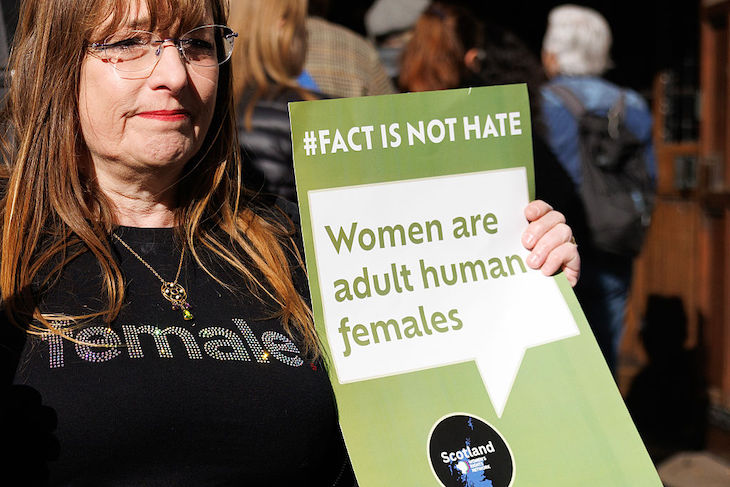How did it come to this? How did we arrive at a situation where it fell to a court of law to tell us what a woman is? That’s my overriding emotion today. I’m delighted the Supreme Court has ruled that a woman is legally defined as a person with female biological characteristics. But I’m gobsmacked that we apparently needed five judges to tell us something our species has known since we first came down from the trees.
What sweet relief the judges made the right decision. But the garlands should go to For Women Scotland
The ruling of the Supreme Court is fantastically sensible. It unambiguously states that the sex-based rights outlined in the Equality Act 2010 are based on biological sex. So where the Act refers to ‘women’, it means biological women. And where it refers to ‘sex’, it means biological sex. This means it is now the law of the land that, legally at least, the word ‘woman’ does not include men who identify as women – no, just women; real women.

Get Britain's best politics newsletters
Register to get The Spectator's insight and opinion straight to your inbox. You can then read two free articles each week.
Already a subscriber? Log in







Comments
Join the debate for just £1 a month
Be part of the conversation with other Spectator readers by getting your first three months for £3.
UNLOCK ACCESS Just £1 a monthAlready a subscriber? Log in